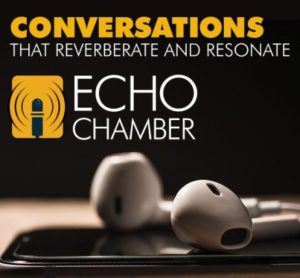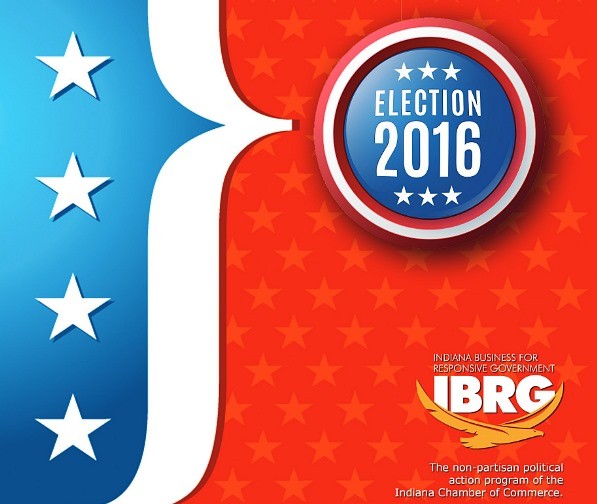
Who said video killed the radio star?
(Okay, some band from the late ’70s sang that phrase in a popular song that many associate with the rise of MTV.)
But the point is, radio never died. It is back and bigger than ever, thanks to a growing industry movement: the podcast.
With the ability to instantly stream or download radio programs on any number of topics, podcasting has invigorated audio listeners and broadcasters alike. Your phone most likely holds enough hours of programming to keep you awake for days bingeing everything from true crime (my personal favorite), to news and politics, health and wellness, music, pop culture, literature and business (and a whole lot more).
If you’re new to the podcast landscape, understand that you can access shows from just about any device that has an internet connection. There are plenty of apps to download to manage your podcast subscriptions, which makes it easier to know where you left off and what you’d like to save for the future.

The Indiana Chamber of Commerce launched the EchoChamber podcast earlier this year, featuring conversations with Indiana leaders in business, education, government and more. New episodes are featured every other Tuesday and you can listen via the web site, www.indianachamber.com/echochamber, or subscribe wherever you get podcasts.
(If you listen, do us a favor and rate and review us on iTunes! It helps more people discover our content.)
Our most recent episode features Blair Milo, former LaPorte mayor (elected at age 28), Navy veteran and the state’s first Secretary of Career Connections and Talent. She discusses the challenge of aligning current workforce efforts and introducing new ones to tackle workforce issues in Indiana. Listen here.
There are other Indiana-focused business podcasts to tune into as well: Indiana Chamber President Kevin Brinegar has been featured on The ROI Podcast from the Kelley School of Business. And Inside INdiana Business recently launched a podcast of its own, focused on its weekly television show.
If you’re looking outside of Indiana-specific business podcasts, Fast Company recently listed 10 popular business podcasts to check out:
- “Startup,” Gimlet Media
No podcast better captures the thrills and struggles of launching a company. Created as a remarkably candid docuseries on the birth of podcasting business Gimlet Media, it now traces the surprising stories of other enterprises.
- “Planet Money,” NPR
This show – launched in 2008 to help explain the financial crisis – offers fascinating explorations of the intersection between economics and culture.
- “Working,” Panoply
Each installment starts with the same question: “What is your name and what do you do?” Guests then reveal details of their jobs, whether they’re a neurosurgeon, a novelist, a pollster, or a clown.
- “Above Avalon,” Above Avalon
A giant bite of Apple. Hosted by analyst and technology writer Neil Cybart, this show goes deep into all things Cupertino, with some of the most informed analysis you’re likely to find.
- “Brown Ambition,” Brown Ambition
Journalist Mandi Woodruff and personal-finance expert Tiffany Aliche chat about news, relationships, and other topics, but they’re especially incisive when discussing their successes and failures in the business world.
- “How I Built This,” NPR
This series explores backstories of various big businesses, from AOL to 1-800-GOT-JUNK. The storytelling is simple and linear, leaving space for gripping personal tales to emerge.
- “Eater Upsell,” Vox Media
Editors from culinary site Eater glean insight from chefs and other industry pros, both famous (Anthony Bourdain) and less so (cookbook photographer Evan Sung).
- “Exponent,” Exponent
Tech watchers Ben Thompson and James Allworth tackle topics of the moment – fake news on Facebook, Uber’s scandals – and offer broader discourse on where the digital world is headed.
- “I Hate My Boss,” Wondery
Former Nike and Oprah Winfrey Network marketing executive Liz Dolan and executive coach Larry Seal offer advice on your stickiest workplace conundrums.
- “Loose Threads,” Loose Threads
Focused on innovation and technology in the fashion industry, this podcast digs into notable developments in manufacturing, design, retail, and other areas.
What’s playing on your drive home? Share your favorite podcasts in the comments!

 Congressman Luke Messer (IN-06), chair of the Republican Policy Committee, announced the launch of the
Congressman Luke Messer (IN-06), chair of the Republican Policy Committee, announced the launch of the  Indiana Business for Responsive Government (IBRG), the non-partisan political action program of the Indiana Chamber of Commerce, scored a very successful general election; 57 of 59 IBRG-endorsed candidates facing opposition were victorious, including Republicans and Democrats. Twenty additional endorsed candidates did not face general election challenges.
Indiana Business for Responsive Government (IBRG), the non-partisan political action program of the Indiana Chamber of Commerce, scored a very successful general election; 57 of 59 IBRG-endorsed candidates facing opposition were victorious, including Republicans and Democrats. Twenty additional endorsed candidates did not face general election challenges. Something to celebrate for Earth Day: Indiana’s air quality has not been as good as it is today in over 60 years! I remember the first Earth Day 45 years ago and for a decade served on the Indiana Earth Day board. I’ve witnessed step by step Indiana’s group effort to make the air cleaner and cleaner.
Something to celebrate for Earth Day: Indiana’s air quality has not been as good as it is today in over 60 years! I remember the first Earth Day 45 years ago and for a decade served on the Indiana Earth Day board. I’ve witnessed step by step Indiana’s group effort to make the air cleaner and cleaner. Phil Mercier was included in the September/October 2011 BizVoice® article,
Phil Mercier was included in the September/October 2011 BizVoice® article, .jpg) Third party candidates were hardly Perot-ic in the 2008 general election. Among them, independent Ralph Nader (though technically not in a party this year) garnered the most votes. Somewhat surprising to me, as former GOP Congressman and Libertarian candidate Bob Barr seemed to receive far more media coverage than any of the other candidates. Here are some
Third party candidates were hardly Perot-ic in the 2008 general election. Among them, independent Ralph Nader (though technically not in a party this year) garnered the most votes. Somewhat surprising to me, as former GOP Congressman and Libertarian candidate Bob Barr seemed to receive far more media coverage than any of the other candidates. Here are some